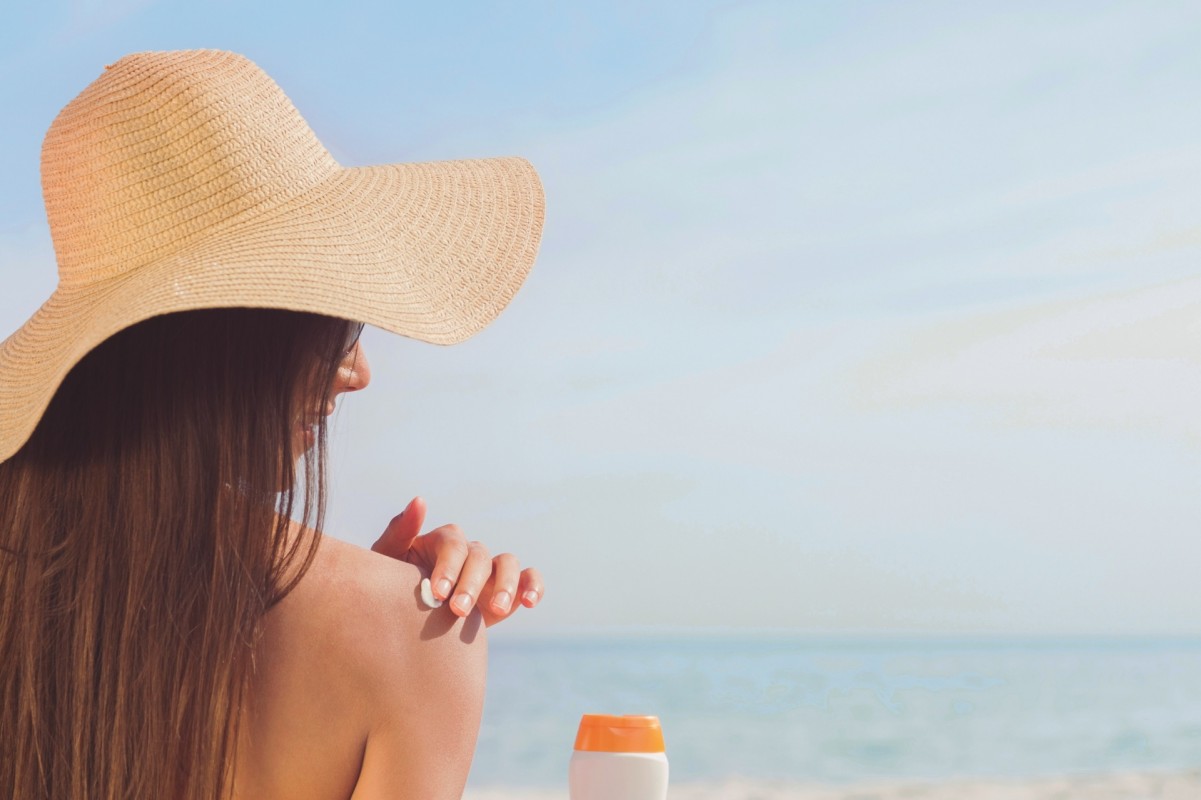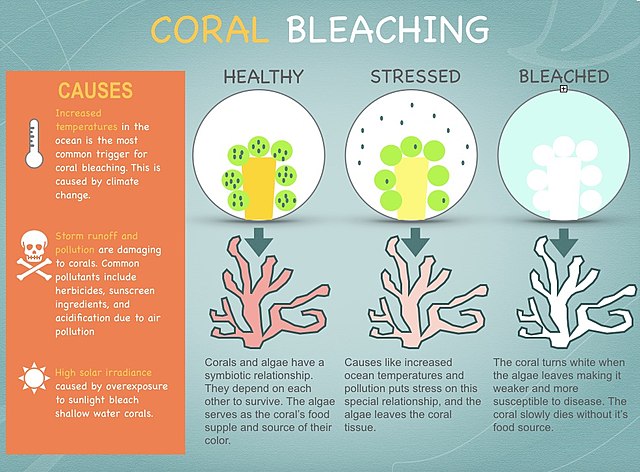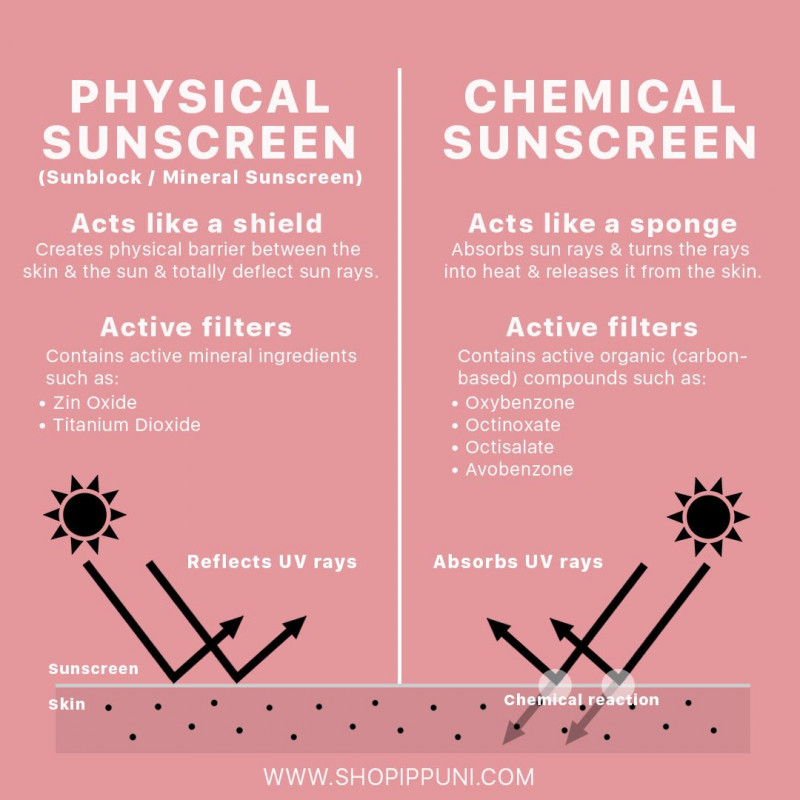 Did you know that certain types of sunscreens are having adverse effects on marine life?
Did you know that certain types of sunscreens are having adverse effects on marine life?
Hawaii recently passed a bill that bans sunscreens containing certain chemicals due to their connection to coral bleaching.
The ban will likely result in 3,500 over-the-counter sunscreens being removed from stores; this includes 70% of sunscreens on the market.
What are corals and why are they susceptible to certain sunscreen lotions? What can we do to save them?
Corals and Bleaching
Coral reefs are made up of thousands of tiny, clear jelly-like animals called "coral polyps". Each of these polyps has a hard, outer shell made of calcium.
 Most reef-building corals live in warm water and share a mutually beneficial (symbiotic) relationship with algae that grows on them.
Most reef-building corals live in warm water and share a mutually beneficial (symbiotic) relationship with algae that grows on them.
These small algae, called zooxanthellae, provide food to the corals through photosynthesis and remove waste. The coral uses the glucose, glycerol, and amino acids from the algae to produce its hard limestone shell.
The algae also give corals their distinctive colors. In return, the coral gives the algae protection and provides essential compounds that the algae need for photosynthesis.
Coral reef ecosystems support 25% of all marine species. In addition, corals protect shorelines, support the fishing industry, and boost the tourism industry.
Coral bleaching occurs when corals are stressed due to environmental disturbances including temperature, light, and chemical changes in the environment. The algae that give corals color leave due to stress, causing the coral to turn white (bleach). When the algae leave, the coral does not have a food source and becomes more susceptible to diseases.
The Sunscreen Connection
 While sunscreens from the 1980s and 90s contained physical barriers that reflected UV rays, today, most sunscreens provide chemical protection against UV rays.
While sunscreens from the 1980s and 90s contained physical barriers that reflected UV rays, today, most sunscreens provide chemical protection against UV rays.
The organic chemicals in sunscreens, such as oxybenzone and octinoxate, absorb UV radiation and release heat. This intercepts the harmful UV rays before they reach your skin.
When people enter the ocean with sunscreen on, a good portion of it washes off and contaminates the water. These two chemicals have been linked to coral bleaching, damage to coral DNA, and developmental issues in baby coral polyps. They also filter out UV light, making the coral more vulnerable to viruses.
Coral in this weakened state is even more vulnerable to the effects of climate change, and this can pose a real threat to the species as a whole.
This isn’t a reason to ditch the protection next time you go to the beach. Sunscreen is a necessity in order to prevent skin cancer and other damage and there are plenty of brands that use non-harmful active ingredients. You can also wear hats and long-sleeve rash guards that cover more skin, so you can reduce sunscreen use overall.
Next time you purchase sunscreen, flip the bottle over to see if the ingredient list contains oxybenzone or octinoxate.
Sources: Washington Post, QZ, Nature, NOAA.gov







